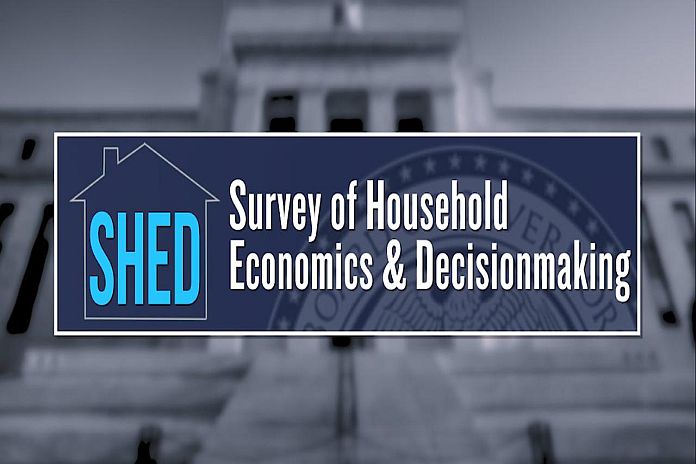WASHINGTON, USA – In the fourth quarter of 2020, nearly one-fourth of adults said that they were worse off financially compared to a year earlier, reflecting the economic fallout and distress resulting from the global COVID-19 pandemic. The Federal Reserve Board’s report, Economic Well-Being of US Households in 2020, which was released on Monday, found a larger share of adults were worse off in 2020 than in previous years of the survey. This change occurred broadly across the population, but not all groups fared similarly.
Despite the increase in the share of Americans doing worse off financially, most believed they were still at least doing “okay” financially overall. Seventy-five percent of adults were either doing okay or living comfortably in November, which was unchanged from 2019 after having fluctuated through the year. However, not all groups have fared similarly through the pandemic, and persistent disparities in well-being across education and race remained.
Adults with at least a bachelor’s degree were much more likely to report doing at least okay financially (89 percent) than those with less than a high school degree (45 percent). This gap increased to 44 percentage points in 2020 from 34 percentage points in 2019. In 2020, less than two-thirds of Black and Hispanic adults were doing at least okay financially, compared with 80 percent of White adults and 84 percent of Asian adults. The gap in financial well-being between White adults and Black and Hispanic adults has grown by 4 percentage points since 2017.
The report draws from the Board’s eighth annual Survey of Household Economics and Decisionmaking (SHED), which examines the economic well-being and financial lives of US adults and their families. The 2020 survey of over 11,000 adults was conducted in November of last year, offering a picture of how individuals were faring eight months after the onset of the pandemic. This year’s report covers emerging issues brought on by pandemic-related disruptions and offers insights into how people viewed their longer-run financial circumstances, including how they relate to education, housing satisfaction, and retirement savings.
“This new survey gives us valuable details about the financial challenges families have faced during the pandemic,” said Federal Reserve Board Governor Michelle W. Bowman. “Even as the economy has improved, we can certainly see that some are still struggling, especially those who lost their jobs and those with less education, many of whom fell further behind. Helping families and communities was a central goal of the Federal Reserve’s response to the pandemic, and the SHED is providing valuable insight into the successes and ongoing challenges of Americans as they continue to experience its effects.”
People who retained their jobs during the pandemic generally had stable or improving finances in 2020. However, those who suffered a layoff and an extended period of unemployment saw a deterioration of their financial circumstances. Layoffs during the pandemic were concentrated among workers with fewer financial resources, which further exacerbated pre-existing disparities in their financial well-being. Those who were laid off during the pandemic typically had a relatively small financial cushion to begin with, as less than two-thirds of those who were laid off said they were doing at least okay financially in late 2019, before experiencing job loss.
The survey confirmed that the ability of parents to work was affected by disruptions in childcare and schooling. Twenty-two percent of all parents were either not working (9 percent) or were working less (13 percent) because of such disruptions. The 9 percent of parents who were not working translates into nearly 2 percentage points fewer adults who were working overall. The unexpected pandemic-related need for childcare particularly affected mothers, preventing them from entering or fully participating in the labor force. Black, Hispanic, and single mothers, as well as mothers with low incomes, were more likely not to be working or to be working less due to the disruption.
Students of all ages were also affected by the pandemic since widespread school closures began in March 2020. Parents viewed online education less favorably than in-person education. Only 22 percent of parents of K-12 students taking online classes thought their youngest child was learning as much as they were with in-person classes, whereas 59 percent said they were not. Among college students taking classes online, 34 percent thought they were learning as much as they would in-person, compared with 43 percent who did not.
Results from the survey reflect financial conditions in late 2020 during the pandemic and indicate the changing nature of families’ experiences. Financial repercussions related to COVID-19 continue to evolve, and the Federal Reserve Board will continue to monitor them.
The report, downloadable data, data visualizations, and a video summarizing the survey’s findings may be found here.





